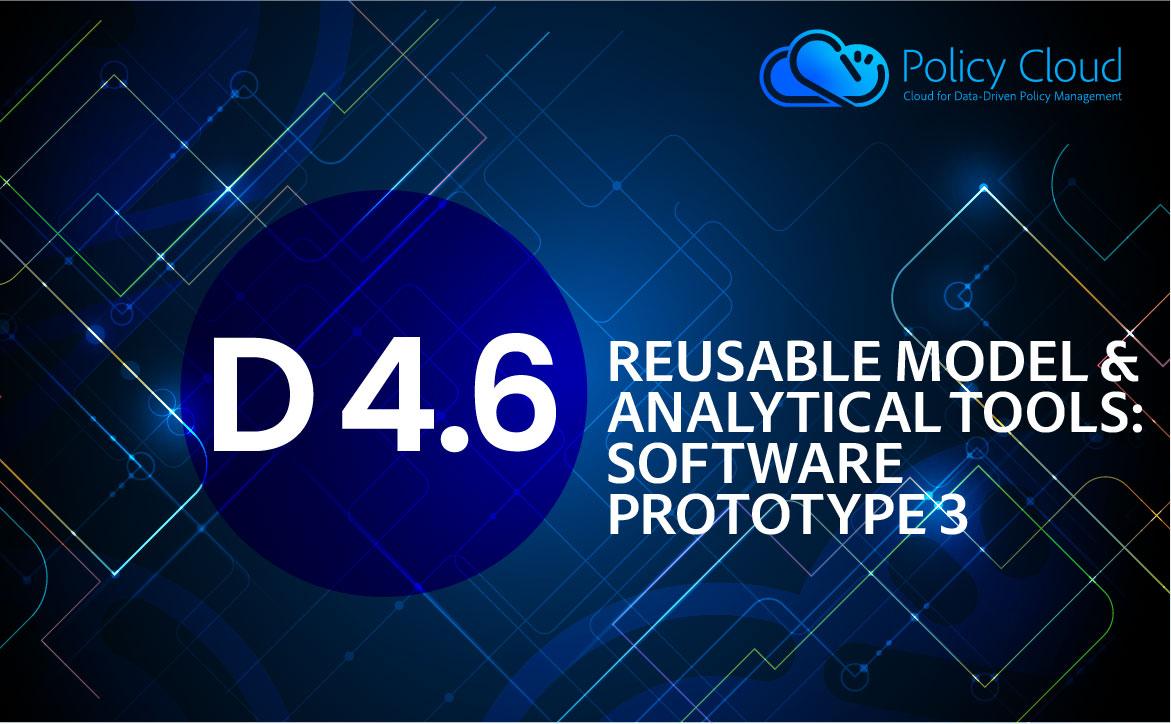
- Cloud for Data-Driven Policy Management
- Contact Us
- Join our community
- Login
D4.6 REUSABLE MODEL & ANALYTICAL TOOLS: SOFTWARE PROTOTYPE 3

Submission date:
Tuesday, 25 October, 2022
WP:
- WP4: Reusable Models & Analytical Tools
This document is the third and last software demonstrator deliverable of PolicyCLOUD at M34, October 2022, of the project and is intended for the reviewers of the software deliverables.
This deliverable provides the description of the final software demonstrator for the components of the Integrated Data Acquisition and Analytics (DAA) Layer, which provides the analytical capabilities of the PolicyCLOUD platform. The components include the DAA API Gateway (responsible for the overall orchestration and the layer API), the built-in analytical tools such as the new Trend Analysis tool as well as the analytical tools already presented in D4.4 [6]: Data cleaning and interoperability, Situational Knowledge, Opinion Mining & Sentiment Analysis and Social Dynamics & Behavioural Data analysis, and the Operational Data Repository.
The full integration of the DAA API Gateway (responsible for the overall orchestration and the layer API) was demonstrated during the review of June 2021 for two use cases. As of the publication of this deliverable, this has been extended in multiple ways:
- Additional ingest analytics capabilities such as Trend Analysis were added as detailed in section 2.1.3 and 2.1.4
- The new integration of the Politika framework with PolicyCloud as detailed in section 2.2.5 of D4.5 [3] and as further detailed in sections 2.1.5.4 and 2.1.6 of this deliverable.
- The integrated Politika framework was itself used for two use cases, as detailed in section 2.2.6.2
The novel seamless architecture which was introduced in D4.4 [6] and which presents single logical datasets to users that can be explored with SQL had further been enhanced in the past year by performance enhancements of the SQL JOIN as detailed in section 4.4.4 of D4.5.
The impact of using the seamless technology is minimal, as the users do not even know in what storage tier their datasets are stored. The only impact is a change of the SQL statement that now makes use of atable function that accepts standard SQL statements though, as detailed in section 2.2.8.3.


